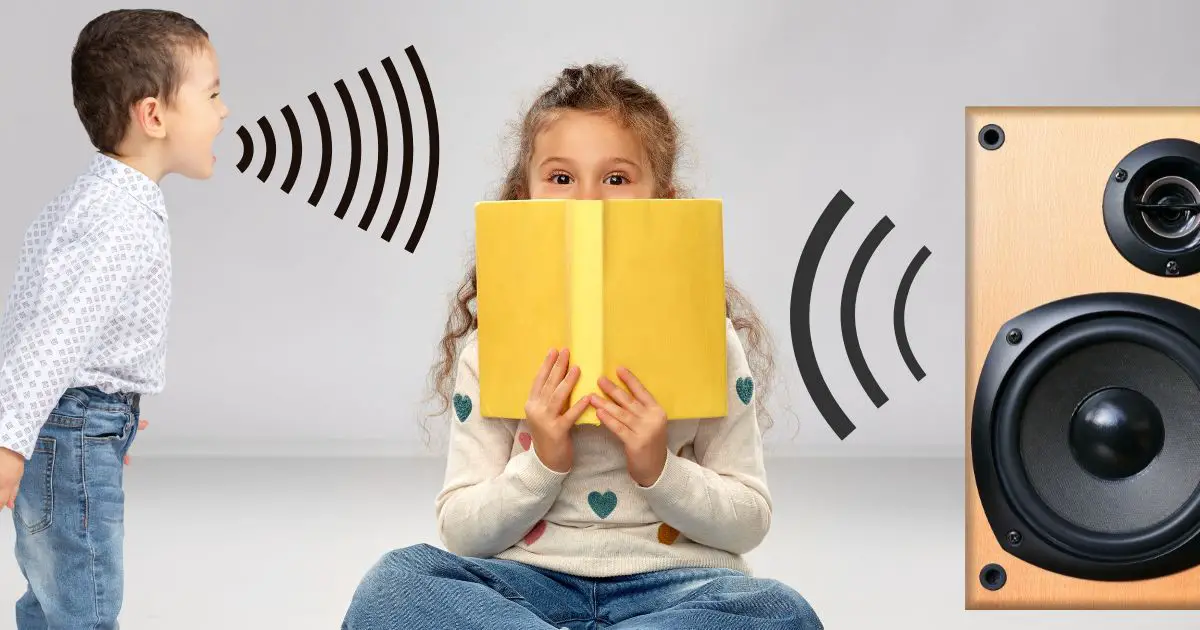Are you a big-time gossiper or have a friend who won’t stop gossiping about you? Gossip can sometimes be positive, but more often than not, it’s harmful. So, what can you do to deal with gossip?
Gossip among friends is toxic and may harm your relationships. When you participate in gossip, it can ruin trust and understanding while also hurting reputations which might end up causing strained or even broken connections.
1. Understanding Gossip Among Friends

What is Gossip?
Gossip means talking about a person’s personal or private matters without getting their permission. It may include spreading rumors, secrets, or views that are not completely true. Gossip can be mean-spirited, intending to damage someone’s image; alternatively, it may appear harmless when shared playfully. Regardless of the intention, gossip can have significant consequences.
Besides affecting the immediate social situation, gossip spreads stereotypes and strengthens negative actions. It can create an atmosphere where negativity grows, causing friends to lose trust and become suspicious of each other. Gossip’s influence may go beyond the first group it involves, reaching into wider social connections and possibly even affecting someone’s work life. Knowing that gossip may bring about various types of damage is crucial in comprehending its complex nature.
Why Do People Gossip?
People do gossiping for different motives. It might be to create a connection, feel part of a group, or get attention. People may also use gossip as an outlet to express their anger and envy. Understanding the motives behind gossip can help in addressing its negative impact on relationships.
Apart from these reasons, gossip could be a way for people to handle their feelings of insecurity or lesser self-worth. When someone talks about other people’s faults or bad luck, it might make them feel temporarily better about their own lives. Yet this effect is only for the moment and doesn’t solve the main problems leading to their unhappiness – rather it helps create a loop of negativity. Understanding these underlying psychological cues might be a move towards encouraging more beneficial and cheerful exchanges.
The Thin Line Between Sharing and Gossiping
It is normal to share news or updates with friends. But when you start discussing someone’s private matters without their knowledge, it becomes gossip. Understanding this limit is very important for keeping good relationships.
To handle this line, one must have a mindful approach toward respecting folks’ personal space and self-governance. You need to ponder on the purpose of sharing information: is it for knowledge or to degrade? Also, you must question if the info is yours to share. When friends make an effort to build an environment where everyone is treated with respect and understanding, it reduces the chances of gossip. This kind of attitude not only keeps trust intact but also leads to better, more supportive relationships.
2. The Impact on Trust

Eroding Trust
Trust is the key. When friends gossip about one another, it establishes a feeling of disloyalty. The person who becomes subject to gossip might feel defenseless and uncovered, causing the trust to crumble. Once trust is damaged, it can be challenging to rebuild.
The breaking of trust doesn’t only damage the one who is talked about but also harms the group’s general harmony. Other friends might begin to think about those participating in gossip, questioning their honesty and fearing that they could also be targeted. A widespread feeling of mistrust can cause the friendship circle to break apart, as people become more cautious and less eager to share personal details. This weakens bonds within it.
Creating Paranoia and Suspicion
Gossip might bring about unnecessary fear and doubt among friends. When someone is told that others are speaking secretly about them, it could make that person more watchful or vigilant. This can create an atmosphere of less trust and openness within the group, which would weaken their friendships even more.
In this environment, people can mix up simple actions with hidden motives. This could create more confusion and disagreement among friends. They may start to suspect each other’s intentions and genuine feelings, creating a situation where everyone questions the actions of others. As time passes, this might weaken the feeling of community and help those friendships normally give by changing it into an atmosphere filled with fear and doubt.
Undermining Confidentiality
Confidentiality is significant in cultivating deep and genuine friendships. If friends gossip, it violates this trust. This situation makes it tough for people to communicate their ideas and emotions honestly because they may worry about others talking behind their backs. This lack of trust can impede the bond from growing stronger and more secure.
When confidentiality is not preserved, discussions among friends can become less deep. Those involved may feel hesitant to share their struggles and successes for fear of these stories turning into gossip. This withholding stops friends from offering complete support to one another because they aren’t aware of each other’s genuine experiences and emotions, halting the emotional growth and backing that typically characterize strong friendships.
3. The Ripple Effect

Spreading Misinformation
Gossip can include details that are not completely true, and this kind of misinformation may lead to misunderstandings and arguments. When false or exaggerated information spreads, it stirs up extra drama and tension among friends.
Misinformation can also make conflicts last longer. When friends hear wrong or twisted versions of events, they might react based on incomplete or false information and create unnecessary fights that keep problems going. Sharing untruths can make friends choose sides, making the disagreement worse and encouraging a feeling of mistrust.
Damaging Reputations
One severe consequence of gossip is harm to someone’s reputation. Bad rumors or tales can stain the image of an individual, impacting how they are seen by others. The damage caused may be prolonged and hard to fix.
A reputation that is harmed might not only cause issues in personal connections but also impact professional chances, standing within society, and even self-respect. The person who suffers from such damage could have trouble recovering the respect and trust that were lost. Bad things said about someone can bring social disgrace which may isolate them from others making it hard to create fresh bonds or keep current ones intact.
Creating a Toxic Environment
A circle of friends that is filled with gossip can transform into a harmful setting. Frequent gossiping breeds negativity and grudges, making it hard for beneficial and encouraging relationships to flourish. In this type of atmosphere, real connections are usually substituted by surface-level interactions.
When a place is toxic, it might have more focus on negative talk and less on positive interactions or support. In this situation, friends could start to doubt sharing personal details or asking for assistance because they are worried about being talked about next. Such an environment hampers individual progress and mutual assistance, converting what could have been a beneficial social group into one that causes strain and unease.
4. Emotional Consequences

Hurt Feelings
To be the topic of gossip is very painful. It brings feelings such as embarrassment, shame, and betrayal which might affect one’s mental health and overall well-being leading them to distance themselves from the group.
The effect of hurt feelings can stretch further than just the close social group. People who undergo this emotional distress might become cautious about making new ties and worried about receiving a similar kind of treatment later on. This caution could result in a cycle of avoidance and suspicion which makes it hard to form intimate relationships with others. With time, these bad encounters can add up to an overall feeling of unease and hesitancy in social situations.
Anxiety and Stress
Gossip can cause anxiety and stress too. The fear of being talked about or judged might create a continuous state of worry. This tension could influence self-confidence and general joy, making it tough to have fun when spending time with friends.
Additionally, the tension caused by gossip can show itself in physical ways too, like giving people headaches or making them feel tired all the time. It might also make it difficult for those experiencing stress to sleep properly at night. Stress that keeps happening due to these social pressures could weaken the immune system of an individual and lead them more easily towards illnesses. The continuous worry and obsession about possible gossip can also damage thinking abilities. This may result in a decreased concentration capacity, decision-making skills as well as performing efficiently in daily activities or work surroundings
Loneliness and Isolation
Broken trust and damaged relationships caused by gossip can make people feel lonely and isolated. They may find it hard to trust others after learning about the things said behind their backs. This break in trust can lead to a loss of friendships or a feeling of being alone, which makes forming new connections difficult. The isolation that results from this situation has deep effects on one’s emotional well-being.
Also, being alone can make depression and anxiety worse, forming a loop that’s hard to escape. Those who feel isolated may start thinking they are useless for real friendship or support, leading to a feeling of hopelessness and sadness. This negative self-view could make them hesitant in seeking assistance which deepens their loneliness even more and makes healing from these emotional injuries tougher still.
5. Preventing Gossip

Promoting Open Communication
Motivate speaking freely and honestly. One major way to stop gossip is by encouraging friends to share their worries directly with each other, so there’s no need for secret talks. When people communicate openly, it builds trust and honesty in the group.
It is also important to encourage an environment where communication is open. This can swiftly tackle misunderstandings before they turn into gossip. When friends are aware that they can express themselves freely and will be listened to without any criticism, it becomes easier for them to solve disagreements positively. This active method doesn’t just lessen the chances of gossip but also builds up better relationships among the whole group, making it more united and helpful.
Setting Boundaries
Setting limits on what can be talked about and what should not be discussed might decrease gossiping. Friends need to honor each other’s privacy by not revealing personal details without consent. This could lead to a more considerate and helpful atmosphere.
Additionally, it sets up a structure for what is considered respectful communication. These boundaries help friends comprehend the extent of suitable conduct, assisting in handling touchy subjects without going into gossiping mode. This shared comprehension strengthens trust and respect among a group as every member feels safe that their matters won’t be spread around carelessly, resulting in an even more favorable and trusting friendship relationship.
Leading by Example
One of the most effective ways to prevent gossip is by leading by example. When individuals refrain from gossiping and encourage positive conversations, others are likely to follow suit. Being mindful of one’s behavior can inspire others to do the same.
Leaders who model integrity and respect set a powerful standard for their peers. By consistently demonstrating positive communication habits, such as praising others and addressing issues directly and respectfully, they can influence the group’s overall behavior. This leadership by example not only curtails gossip but also promotes a culture where positive interactions are the norm, encouraging everyone to contribute to a healthier, more supportive social environment.

Conclusion
To sum it all up, gossiping among friends can damage relationships. It reduces trust, disseminates incorrect details, and creates a poisonous atmosphere. The emotional effects of gossip like hurt feelings, nervousness or even feeling alone can be deep-rooted in hearts and minds.
Promoting open communication, setting limits, and showing empathy and kindness can prevent gossip as well as fix broken relationships. Encouraging positive actions and keeping one another responsible might help in creating a supportive and considerate atmosphere where friendships flourish. At the end of the day, it is up to everyone to build strong bonds with others. Consciously avoiding gossip plays an important part in this process.





